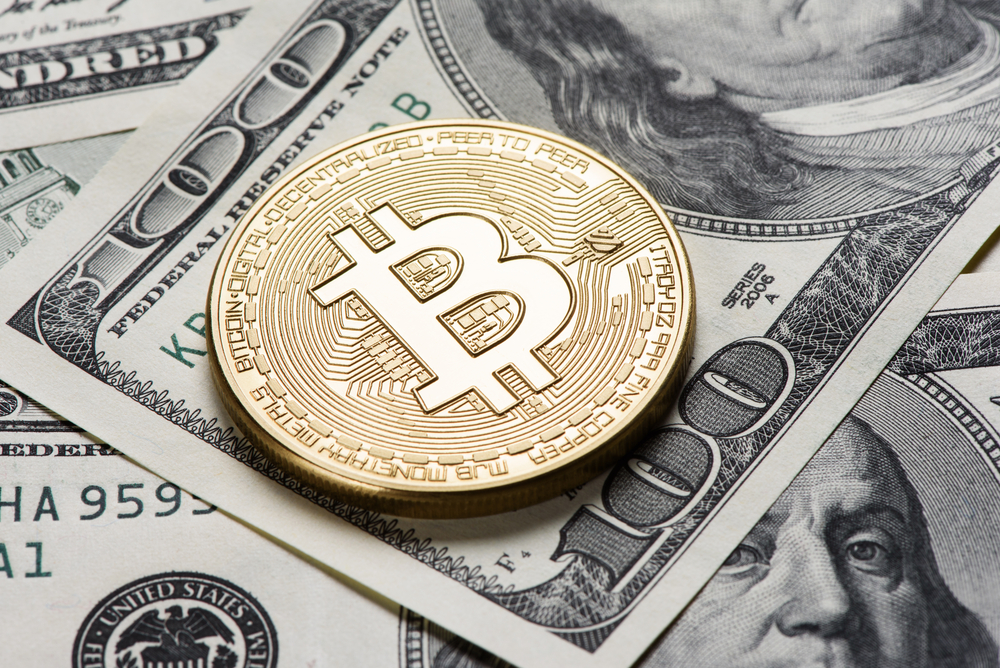Bitcoin’s Potential Rise Tied to Weakening U.S. Dollar, Analysts Say
20.08.2024 12:00 1 min. read Alexander Stefanov
Analysts suggest Bitcoin could solidify its role as digital gold, but this shift may impact the U.S. economy.
Zach Pandl from Grayscale Investments believes a weakening U.S. dollar might drive Bitcoin to unprecedented highs. He anticipates that the dollar could significantly depreciate over the next decade or sooner, depending on upcoming election outcomes and economic policies.
Pandl, formerly a macroeconomic strategist at Goldman Sachs, warns that as U.S. debt rises—currently around $33.2 trillion, far exceeding GDP—the government might struggle with either defaulting or inflating the currency to manage debt.
This situation could enhance Bitcoin’s appeal as it remains immune to inflation due to its fixed supply of 21 million coins.
While the prospect of Bitcoin benefitting from a weaker dollar is intriguing, it’s important to note that the cryptocurrency market remains highly speculative. Investors should consider that Bitcoin’s volatility and its status as a relatively new asset class could introduce significant risks.
As such, despite its potential for growth, Bitcoin’s long-term stability as a store of value compared to more established assets like gold is still under debate.
-
1
UniCredit to Launch Structured Product Tied to BlackRock’s Spot Bitcoin ETF
01.07.2025 17:53 1 min. read -
2
Saylor’s Strategy Halts Bitcoin Buying After Historic Accumulation
07.07.2025 17:00 2 min. read -
3
Trump’s Two big Bitcoin Moves: Key Catalysts or Just Noise for BTC Price?
08.07.2025 7:30 2 min. read -
4
Bitcoin Market Stalls as Profit-Taking, Whale Dispersal, and Sideways Action Define the Cycle
01.07.2025 20:00 3 min. read -
5
Speculation Surges as Binance BTC Futures Volume Tops $650 Trillion
04.07.2025 17:37 2 min. read
Strategy Adds 6,220 BTC, Pushing Total Holdings Past 607,000
Michael Saylor’s Strategy has confirmed another major Bitcoin purchase, acquiring 6,220 BTC last week for approximately $739.8 million.
Bitcoin Open Interest Hits $42B as Funding Rates Signal Bullish Overextension
Bitcoin’s derivatives market is heating up, with open interest climbing back to $42 billion while funding rates continue to surge.
Tim Draper Predicts Bitcoin Will Replace U.S. Dollar
Tim Draper isn’t just betting on Bitcoin—he’s forecasting the death of the U.S. dollar.
UK to Sell Almost $7B in Seized Bitcoin as Treasury Eyes Crypto Boost
The United Kingdom’s Home Office is preparing to liquidate a massive cache of seized cryptocurrency—at least $7 billion worth of Bitcoin—according to a new report by The Telegraph.
-
1
UniCredit to Launch Structured Product Tied to BlackRock’s Spot Bitcoin ETF
01.07.2025 17:53 1 min. read -
2
Saylor’s Strategy Halts Bitcoin Buying After Historic Accumulation
07.07.2025 17:00 2 min. read -
3
Trump’s Two big Bitcoin Moves: Key Catalysts or Just Noise for BTC Price?
08.07.2025 7:30 2 min. read -
4
Bitcoin Market Stalls as Profit-Taking, Whale Dispersal, and Sideways Action Define the Cycle
01.07.2025 20:00 3 min. read -
5
Speculation Surges as Binance BTC Futures Volume Tops $650 Trillion
04.07.2025 17:37 2 min. read


